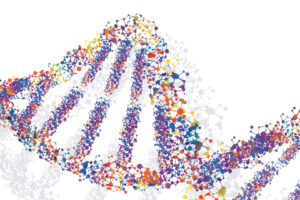Cancer prevention, screening, and treatment should not be put on pause amid a pandemic. With more stories about colorectal cancer in the headlines, now is a good time to learn the facts about this disease.
Kunal Gupta, MD and Amy Tilara, MD, board-certified gastroenterologists and co-directors of interventional endoscopy at CentraState, have teamed up to share the facts on colorectal cancer and why it is essential to stay up to date with screenings.
COLORECTAL CANCER BASICS
Colorectal cancer is a type of cancer that begins in the large intestine (colon). The colon is the final part of the digestive tract. Although colorectal cancer can occur at any age, it typically affects older people.
1 in 20 people will be diagnosed with colorectal cancer in their lifetime.
RISK FACTORS
AGE is the most important risk factor. It’s most common after age 50, but it also can affect younger people, both men and women.
ADDITIONAL RISK FACTORS
- African-American ancestry
- Alcohol use
- Family history of colorectal cancer or polyps
- Smoking
- Obesity
- Physical inactivity
SYMPTOMS
- New onset of abdominal pain
- Change in consistency of stools or in bowel habits
- Blood in stools
Most early stages of colorectal cancer produce little-to-no symptoms.
SCREENING
Colonoscopy
Gold standard screening method
Stool testing
Types include FIT test, Cologuard®
REDUCE RISK
- More fruits, vegetables, and fiber
- Less meat products and fatty foods
- Quit smoking
- Limit alcohol use
- Exercise regularly
- Maintain a healthy weight
- Start screening at age 45
If you have increased risk factors, talk with your doctor about starting screening earlier than age 45.
For more information about cancer services at CentraState, visit centrastatecancercenter.com or call 855-411-CANCER (855-411-2262)





